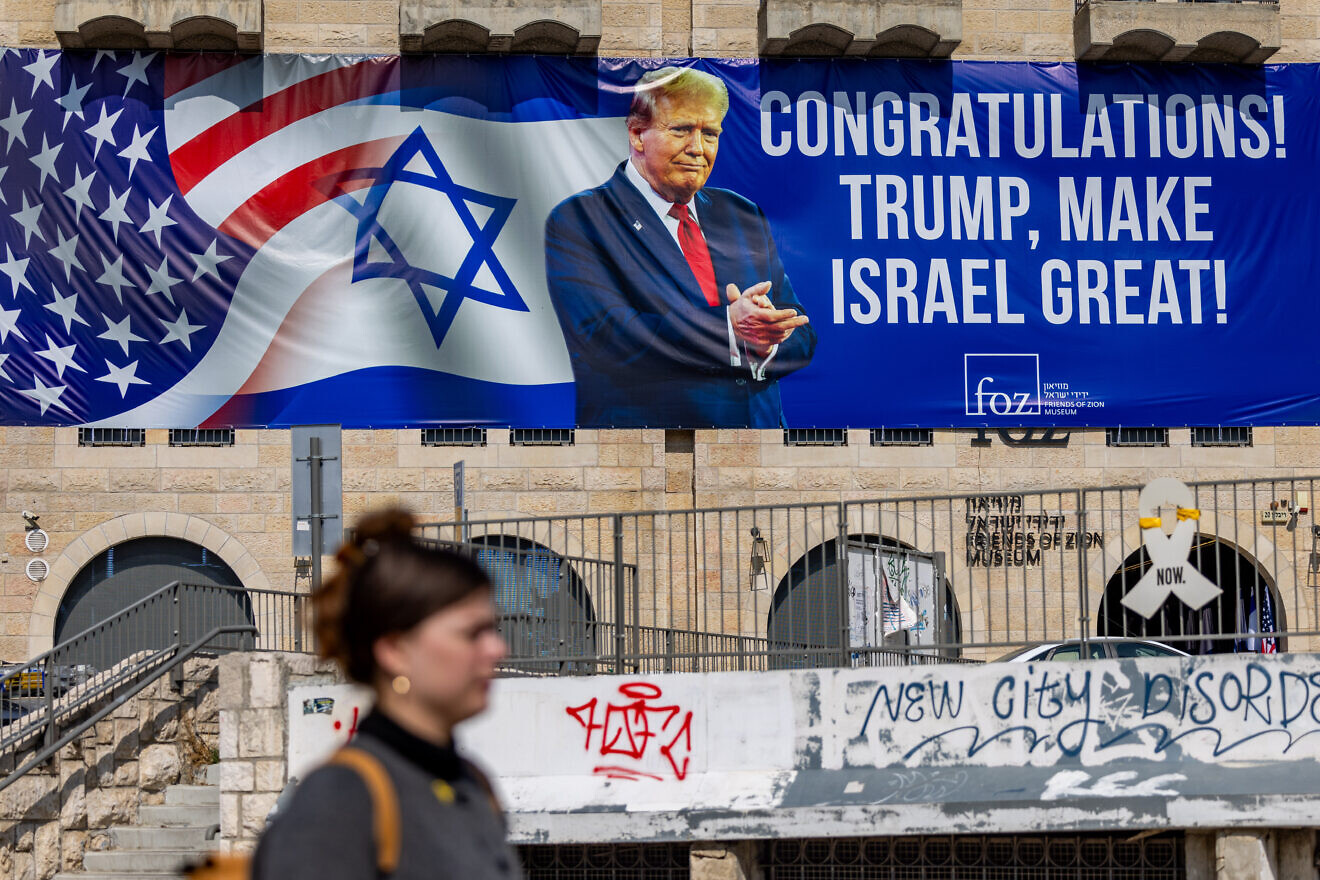U.S. President-elect Donald Trump’s first term was noted for its accomplishments in stabilizing the Middle East, strengthening Israel’s strategic position and embracing creative policies that transformed the reality on the ground. Decisions such as recognizing Jerusalem as Israel’s capital and moving the American embassy to Jerusalem paved the way to the breakthrough of the 2020 Abraham Accords.
While the plate of any new administration is full—and the most pressing matters in Israel today concern the need for decisive defeats of Hamas and Hezbollah, and the return of the 101 hostages being held in Gaza—there are several items worthy of the new administration’s agenda that can solidify the advances made in the first Trump administration and further promote peace and security in the region.
Hamas called its invasion of Israel on Oct. 7, 2023, the “Al-Aksa Flood,” as Israel’s enemies perceived the conquest of Jerusalem as their ultimate objective. Action must be taken to reinforce Israeli sovereignty over Jerusalem. We offer five proposals—some merely a restoration of Trump’s policy from his first term and others a blueprint for preserving Jerusalem into the future.
First: Shutter (yet again) the U.S. Office of Palestinian Affairs in Jerusalem. OPA functions in violation of American, Israeli and international law as a quasi-diplomatic mission in the heart of Israel’s capital that deals exclusively with the Palestinian Authority and Palestinian residents of Jerusalem, Judea and Samaria. It reports not to the U.S. embassy in Jerusalem but directly to the U.S. State Department.
OPA encroaches on Israel’s sovereignty. As was demonstrated during the first Trump term, handling Palestinian affairs from the Jerusalem embassy is efficient, proper and comports with international law and diplomatic norms. OPA should be closed, and its activities should be assumed by the U.S. embassy.
Second: Restore “Jerusalem, Israel” as an official place of birth on American passports. For decades now, American citizens living in Israel whose children were born in Jerusalem could not register their child’s place of birth as “Jerusalem, Israel” because the State Department claimed that Jerusalem’s status as part of Israel was disputed. The place of birth was simply recorded as “Jerusalem.”
Per the U.S. embassy website, “If you write ‘Jerusalem, Israel’ as the place of birth (POB) on the passport, consular staff will ask you whether you prefer the U.S. passport to be printed with a POB of either ‘Jerusalem’ or ‘Israel.’”
This undermines Israeli sovereignty in Jerusalem and contradicts the spirit of America’s recognition of Jerusalem as Israel’s capital city. This policy should be repudiated, and U.S. citizens who so desire should be allowed to have their place of birth recorded as “Jerusalem, Israel.”
Third: Trump should immediately defund the U.N. Relief and Works Agency for Palestine Refugees (UNRWA), as he did in his first term. UNRWA has long outlived its usefulness and has been justly accused of being part of the Hamas terror network. Some UNRWA staff members participated in the atrocities on Oct. 7, and many UNRWA facilities in Gaza harbored terrorists and concealed terror infrastructure. An Israeli court ordered UNRWA’s eviction from its facility. The United States should support that eviction; again halt its funding of UNRWA; and urge the disbandment of the organization and the reassignment of its duties to the U.N. High Commissioner for Refugees.
Fourth: Support the construction of new Jewish neighborhoods within the existing municipal boundaries of Jerusalem, especially in the eastern section. The physical footprint of the city needs to grow to accommodate its growing population. Several areas in Jerusalem’s environs can be used to create housing for hundreds of thousands of new residents. Examples include Givat HaMatos to the east, Givat HaShaked to the south and Atarot to the north. There are thousands of dunams available for development.
All of these neighborhoods are within Jerusalem’s municipal boundaries. Given the housing crisis in Israel, it is wrong that they remain vacant and undeveloped. Trump, a real estate maven, can take the lead in supporting these plans and enabling Israel to fulfill its vision for Jerusalem.
Fifth: Support Israel’s Greater Jerusalem Metropolis Plan. Jerusalem is Israel’s most populous city; urban and economic expansion is a national priority to ensure economic, political and demographic security.
Jerusalem is geographically confined with expansion options limited primarily to vertical growth in existing expensive neighborhoods. That does not solve the severe lack of affordable housing. Increasing the supply by expanding the municipal borders and establishing new neighborhoods would significantly reduce prices, as well as increase affordable housing and job opportunities.
Incorporating the satellite cities surrounding Jerusalem will benefit all residents. The Greater Jerusalem proposal would include the city of Ma’ale Adumim to the east of Jerusalem and Gush Etzion to the south, Givat Ze’ev to the north and possibly Mevaseret Zion to the west. That would free up hundreds of thousands of dunams for the development of residential, commercial, tourism and leisure industries. Expanding the municipal borders will also contribute to securing its Jewish majority by adding more than 200,000 residents to the city.
None of the proposals displace even one Arab, essentially just redrawing Jerusalem’s municipal boundaries in a way that bolsters the capital. Expanding its municipal boundaries also need not impede the final-status negotiations that have long been a goal of American diplomacy. Similarly, the mere prospect of future negotiations should not leave Jerusalem in permanent limbo unable to develop. This logjam can be broken by creative diplomacy and a diplomatic green light by the United States to Israel to pursue the expansion of Jerusalem.
These proposals could immensely benefit all the residents of Jerusalem and ensure that it remains the eternal capital of Israel and the Jewish people with a flourishing future. Their implementation would be a natural continuation of the policies of the first Trump administration and secure his historic legacy of support for the State of Israel and the transformation of the Middle East.


























